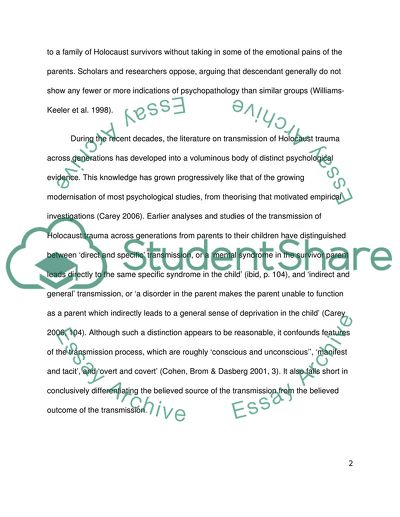Cite this document
(The Generational Psychological Trauma Of The Holocaust Experience Essay, n.d.)
The Generational Psychological Trauma Of The Holocaust Experience Essay. Retrieved from https://studentshare.org/psychology/1748217-draft-literature-review-and-annotated-bibliography
The Generational Psychological Trauma Of The Holocaust Experience Essay. Retrieved from https://studentshare.org/psychology/1748217-draft-literature-review-and-annotated-bibliography
(The Generational Psychological Trauma Of The Holocaust Experience Essay)
The Generational Psychological Trauma Of The Holocaust Experience Essay. https://studentshare.org/psychology/1748217-draft-literature-review-and-annotated-bibliography.
The Generational Psychological Trauma Of The Holocaust Experience Essay. https://studentshare.org/psychology/1748217-draft-literature-review-and-annotated-bibliography.
“The Generational Psychological Trauma Of The Holocaust Experience Essay”, n.d. https://studentshare.org/psychology/1748217-draft-literature-review-and-annotated-bibliography.


